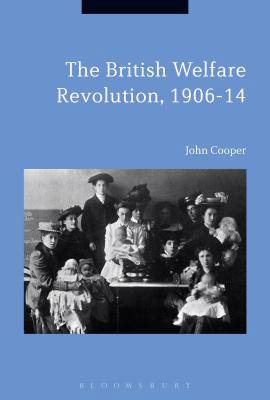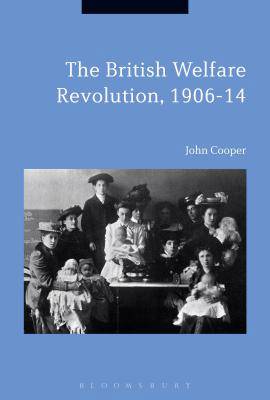
- Retrait gratuit dans votre magasin Club
- 7.000.000 titres dans notre catalogue
- Payer en toute sécurité
- Toujours un magasin près de chez vous
- Retrait gratuit dans votre magasin Club
- 7.000.0000 titres dans notre catalogue
- Payer en toute sécurité
- Toujours un magasin près de chez vous
79,95 €
+ 159 points
Format
Description
The Welfare Revolution of the early 20th century did not start with Clement Attlee's Labour governments of 1945 to 1951 but had its origins in the Liberal government of forty years earlier. The British Welfare Revolution, 1906-14 offers a fresh perspective on the social reforms introduced by these Liberal governments in the years 1906 to 1914. Reforms conceived during this time created the foundations of the Welfare State and transformed modern Britain; they touched every major area of social policy, from school meals to pensions, the minimum wage to the health service.
Cooper uses an innovative approach, the concept of the Counter-Elite, to explain the emergence of the New Liberalism and examines the research that was carried out to devise ways to meet each specific social problem facing Britain in the early 20th century. For example, a group of businessmen, including Booth and Rowntree, invented the poverty survey to pinpoint those living below the poverty line and encouraged a new generation of sociologists.
This comprehensive single volume survey presents a new critical angle on the origins of the British welfare state and is an original analysis of the reforms and the leading personalities of the Liberal governments from the late Edwardian period to the advent of the First World War.
Cooper uses an innovative approach, the concept of the Counter-Elite, to explain the emergence of the New Liberalism and examines the research that was carried out to devise ways to meet each specific social problem facing Britain in the early 20th century. For example, a group of businessmen, including Booth and Rowntree, invented the poverty survey to pinpoint those living below the poverty line and encouraged a new generation of sociologists.
This comprehensive single volume survey presents a new critical angle on the origins of the British welfare state and is an original analysis of the reforms and the leading personalities of the Liberal governments from the late Edwardian period to the advent of the First World War.
Spécifications
Parties prenantes
- Auteur(s) :
- Editeur:
Contenu
- Nombre de pages :
- 368
- Langue:
- Anglais
Caractéristiques
- EAN:
- 9781350109179
- Date de parution :
- 18-04-19
- Format:
- Livre broché
- Format numérique:
- Trade paperback (VS)
- Dimensions :
- 156 mm x 234 mm
- Poids :
- 517 g

Les avis
Nous publions uniquement les avis qui respectent les conditions requises. Consultez nos conditions pour les avis.






